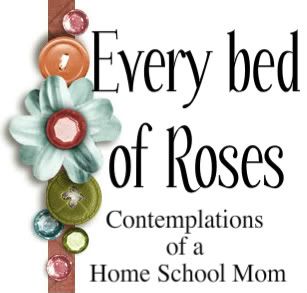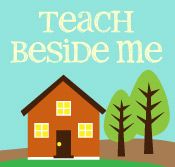I'm sorry this post will not contain a detailed how to on teaching poetry as this is a new season of home education for me. One of the methods I am keen to incorporate in my homeschool is a Charlotte Mason approach. Charlotte says of poetry
"Children should practice reading aloud every day, and their readings "should include a good deal of poetry, to accustom him to the delicate rendering of shades of meaning, and especially to make him aware that words are beautiful in themselves, that they are a source of pleasure, and are worthy of our honour; and that a beautiful word deserves to be beautifully said, with a certain roundness of tone and precision of utterance. Quite young children are open to this sort of teaching, conveyed, not in a lesson, but by a word now and then." from volume 1 pg 227 Older (age 9?)
I'm always amazed at how life unfolds. On Monday we had a home school mothers meeting and the theme for the meeting was Poetry. The guide for this conversation was taken from The Charlotte Mason Companion Chapter 29 Approach to Poetry.
Karen shared some of her view on teaching poetry online over at Homeschool World in her article The Charlote Mason Approach to Poetry.
My gleanings from Karen
- Through carefully chosen poetry, mothers can teach their children to recognise sin, be inspired, and be filled with admiration of God's gifts to man.
- Poetry is not just a means to moral instruction. It is part of the humanities.
- It's a deep expression of thought and feeling.
- It should be permissible to have a different taste for poetry than that of the teacher. Making a connection with poetry
- If you do not like poetry, there is an obvious remedy: introduce the child and the poem and leave them to make friends for themselves.
- Poetry is strewn with ideas. Saturate yourself in the words - they can have an intoxicating effect on the intellect.
- After years of a relationship with poetry, built on shorter poems, children will be capable of enjoying and comprehending longer and more abstract works.
- Read out loud daily (no twaddle allowed)
- Mark the seasons
- Use poems in nature journals
- One Poet a week. If you have an anthology choose one poet and immerse yourselves in their poems for a week or two.
- Use a child's favourite poems in copy work. If it's a long poem choose a stanza a week.
- Memorise poetry and present it at a special tea or a homeschool co-op
Poetry Books
- Favorite Poems Old and New: Selected For Boys and Girls by Helen Ferris Tibbets (Author) , Leonard Weisgard (Illustrator) Over 700 classic and modern poems
- Now we are six - AA Milne
- Favorite Poems of Childhood Edited by Philip Smith
- Favorite Poems old and New by Helen Ferris
- Cotton Sailboats - Poems for Little Children
- Child's Introduction to Poetry
- A Child's Anthology of Poetry
- Classic Poetry
- A Treasury of Poetry for Young People
- The Llama Who Had No Pajama
- All the Small Poems This books was a delight to read out loud. We really enjoyed it.
On the WWW
- Pinterest - Language Arts Poetry
- Teaching Poetry over at Love to Know Home School
- Simply Charlotte Mason: Teaching Poetry
- Simply Charlotte Mason: Poetry - Language Arts
- Charlotte Mason Blog Carnival - Poetry
- Poetry for Homeschool by Jimmie over at Squidoo
- The Parents Review 1892/936 Pages 893-898 An Address on the Teaching of Poetry
- The Parents' Review The Teaching of Poetry to Children by Mrs. J. G. Simpson Volume 12, 1901, pgs. 879-883
- The Parents' Review What is Poetry? by H. A. Nesbitt, M.A. Volume 14, 1903, pgs. 33-42
- Poetry Lesson Plans and Ideas by Harmony ArtMom over at Squidoo.
- 12 Best Poetry Websites for Kids - interactive apps, forms and fun!
- Math Poetry Lessons for Homeschool over at Squidoo
- High School - How to Teach Your Children Poetry over at Crosswalk.
- Homeschool Poetry Study over at 31 Cups
Charlotte explained that “the magic of poetry makes knowledge vital, and children and grown-ups quote a verse which shall add blackness to the ashbud, tender wonder to that ‘flower in the crannied wall,’ a thrill to the song of the lark” (Vol. 6, p. 328)I would love to know your thoughts and favourite books in this area of your home school
Blessings
Chareen
This post is part of the Homeschool Help series brought to you by a group of homeschool Mom's from around the globe. Do not forget to visit and read their inspirational insight.
This week
- Bernadette Waxing Poetical
- Julie Studying Poetry with Children
- Savannah shares Poetry – How and Why to Teach It; Part 1
- Lucinda How we do Poetry Teatime
- Nicole Our First Poetry Smoothietime!











.JPG)

























